Manual GE AHG30LHG1 Dehumidifier
Need a manual for your GE AHG30LHG1 Dehumidifier? Below you can view and download the PDF manual for free in English. This product currently has 4 frequently asked questions, 0 comments and has 0 votes. If this is not the manual you want, please contact us.
Is your product defective and the manual offers no solution? Go to a Repair Café for free repair services.
Manual
Loading…

Loading…
Rating
Let us know what you think about the GE AHG30LHG1 Dehumidifier by leaving a product rating. Want to share your experiences with this product or ask a question? Please leave a comment at the bottom of the page.More about this manual
We understand that it’s nice to have a paper manual for your GE AHG30LHG1 Dehumidifier. You can always download the manual from our website and print it yourself. If you would like to have an original manual, we recommend you contact GE. They might be able to provide an original manual. Are you looking for the manual of your GE AHG30LHG1 Dehumidifier in a different language? Choose your preferred language on our homepage and search for the model number to see if we have it available.
Specifications
| Brand | GE |
| Model | AHG30LHG1 |
| Category | Dehumidifiers |
| File type | |
| File size | 0.58 MB |
All manuals for GE Dehumidifiers
More manuals of Dehumidifiers
Frequently Asked Questions about GE AHG30LHG1 Dehumidifier
Our support team searches for useful product information and answers to frequently asked questions. If you find an inaccuracy in our frequently asked questions, please let us know by using our contact form.
Can I turn on my dehumidifier immediately after purchase? Verified
No, just like a refrigerator or freezer the device should be standing upright for at least 2 hours, but preferrably 24 hours before turning it on for the first time.
This was helpful (670) Read moreWhat is the ideal humidity for a living space? Verified
The ideal humidity in a house is between 40-60%. At a higher or lower humidity, fungi, bacteria and viruses are more likely to develop and you can experience personal discomfort.
This was helpful (503) Read moreHow can I correctly transport my dehumidifier? Verified
Dehumidifiers should always be transported in an upright position and well protected. Any other way of transport might cause damage to the device.
This was helpful (409) Read moreCan my GE appliance also run on a generator? Verified
In general this is possible, but always check this with the manufacturer of your generator. Also be aware that some appliances require a lot of power when starting up (ie: refrigerators, freezers and air conditioners). It's also a good idea to use a generator that is voltage regulated and surge protected. When in doubt you should contact the manufacturer.
This was helpful (37) Read more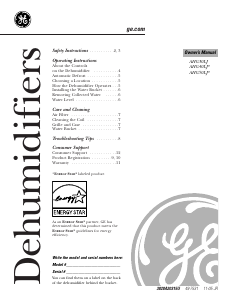


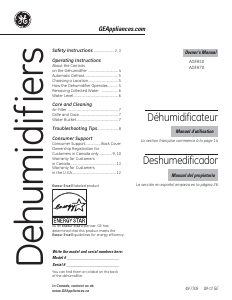
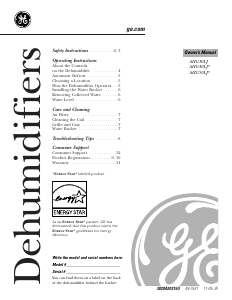
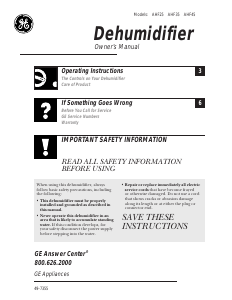
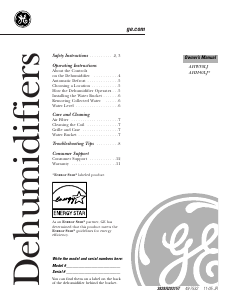
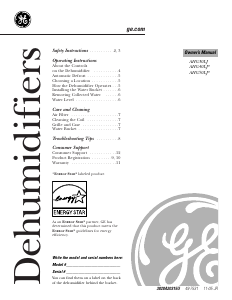
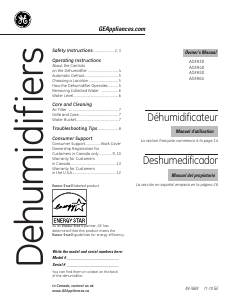
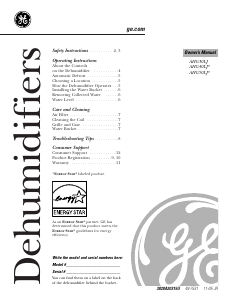
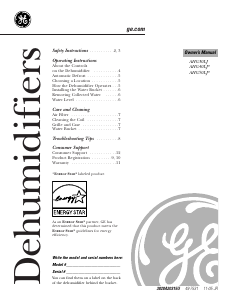
Join the conversation about this product
Here you can share what you think about the GE AHG30LHG1 Dehumidifier. If you have a question, first carefully read the manual. Requesting a manual can be done by using our contact form.